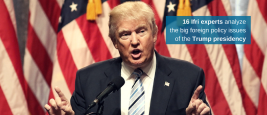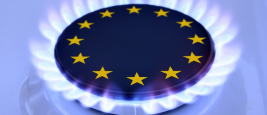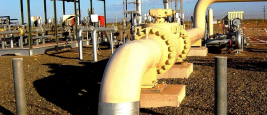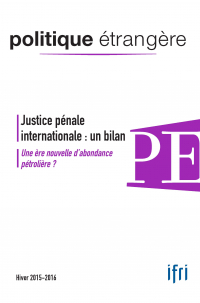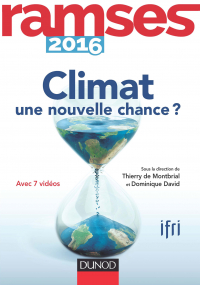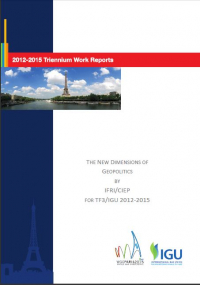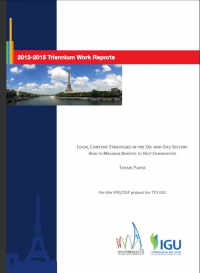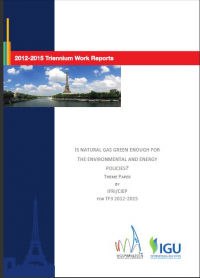
Marie-Claire AOUN
Director, Center for Energy
Marie-Claire AOUN is director of the Center for Energy at the French Institute for International Relations (Ifri) and lecturer at Paris Dauphine University.
She began her carrier in the energy sector in 2004 at the Center for Geopolitics of Energy and Raw Materials (CGEMP) at Paris Dauphine University. She holds a PhD in Economics from the same university and is the author of a thesis on the oil rent and the economic development of oil exporting countries.
Between 2008 and beginning 2014, she served as Economist for the French energy regulator (Commission de Régulation de l’Energie), where she contributed to the elaboration of key policy documents on the European gas markets and the implementation of the third energy legislative package. She worked on gas transmission capacity allocation mechanisms, investments in gas infrastructures, transmission tariffs structures and the congestion management procedures in the European gas transmission pipelines.
She speaks fluently French, Arabic and English.
Her current research areas focus on geopolitics of energy and climate, the oil and gas markets, the EU energy security and the energy policies of hydrocarbons producing countries.
France’s current presidential campaign has created an unprecedented situation fuelled by revelations and a total absence of restraint, but it has not truly taken account of the disruptions of the last year: Brexit, the attempted coup in Turkey, the election of Donald Trump, the recapturing of...
What will become of US foreign policy under Donald Trump? A selection of Ifri researchers has come together to offer their thoughts on this question. Our experts cover an array of topics through 14 contributions, ranging from the future Sino-American relations, through US engagement in the...
Since the announcement of the Nord Stream 2 project in June 2015, the debate around the benefits of this project for Europe is raging, putting forward political, economic and commercial arguments.
Given the tensions between the EU and its main gas supplier, Russia, the European Commission has been revisiting since 2014 its energy security strategy.
The EU gas policy has to deal with a new landscape on the supply and demand sides. This study examines five major recent evolutions of the EU gas market: the relations with Russia, LNG coming back to Europe, the decrease of Groningen production, the contrasted evolutions of shale gas and the...
From 2014 to 2015, the price of oil fell.
Adaptation issues started to gain momentum from the Copenhagen conference in 2009. Up until then, international negotiations had focused on mitigation policies. However, the increase in weather events and the inadequate efforts to hold back global warming now make adaptation a key issue in...
Editor: Deborah Sherwood, published by Cligendael International Energy Program (CIEP) and Institut français des relations internationales (Ifri)
Editor: Deborah Sherwood, published by Institut francais des relations internationales (Ifri)
Editor: Deborah Sherwood, published by Clingendael International Energy Program (CIEP) and Institut français des relations internationales (Ifri)
OPEC will not cut the output production target at the next meeting on Dec. 4 because the goal to defend its market share has not been reached yet, Director of Center for Energy in French Institute of international Relations (IFRI) Marie-Claire Aoun believes.
...OAO Gazprom, the biggest natural gas producer, will probably see lower gains in Europe for at least four years as weaker oil prices and rising competition threaten to further cut its profits, a government forecast showed.
The Ukrainian crises and changing business conditions in the natural gas markets have taken their toll on the strategic partnership that Europe and Russia laid out in the early 2000s. The European Union is looking to increase its energy security while Moscow continues to...
Oil’s decline is proving to be the worst since the collapse of the financial system in 2008 and threatening to have the same global impact of falling prices three decades ago that led to the Mexican debt crisis and the end of the Soviet Union.





